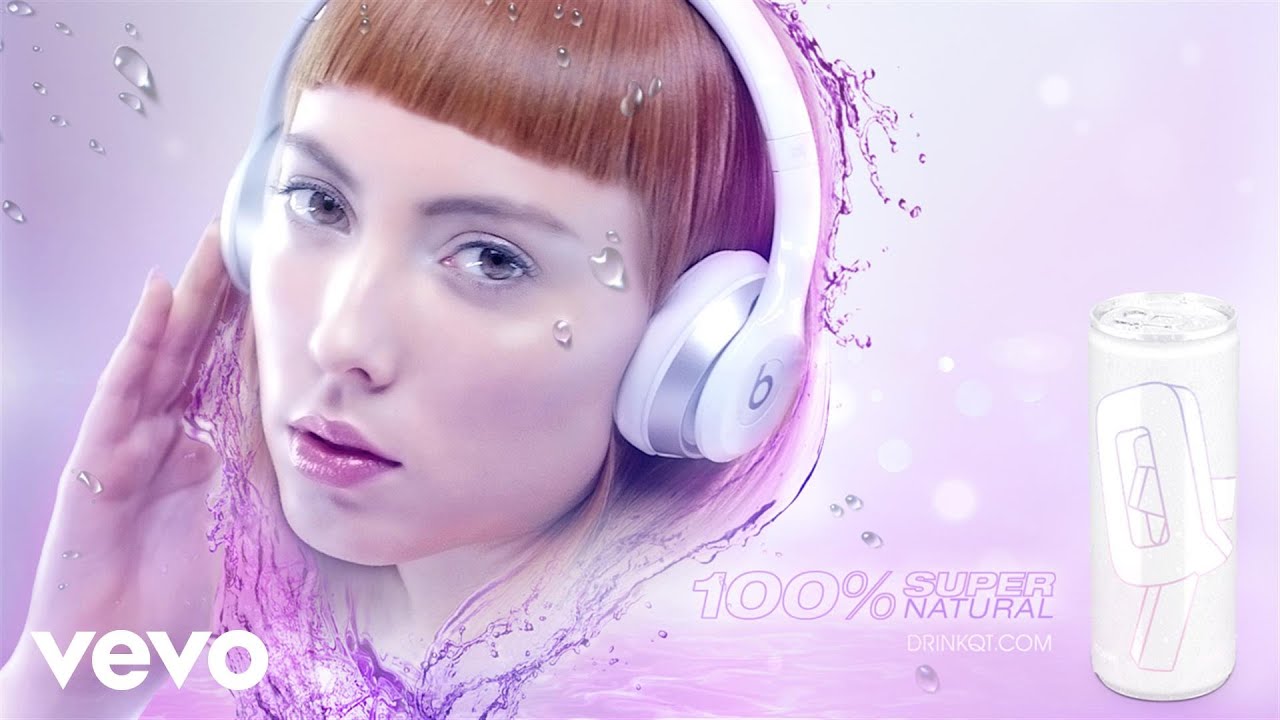
The Electroclash Revival That Won’t Happen
“Hey QT” still plays in my head sometimes. Not for its emotion or its melody, but for its clarity. It never pretended to be more than it was. A single, sealed idea. A pop song, a brand, an avatar, a product, all introduced in one breath. QT didn’t evolve. She arrived finished.
Released in 2014 by the collaborative effort of A. G. Cook and SOPHIE, “Hey QT” wasn’t trying to hide behind authenticity, it openly staged its artificiality. QT, the fictional pop star, wasn’t an artist but a brand ambassador for an energy drink that didn’t exist, fronting a song that sounded like a commercial before a chorus. The track blurred the line between music and product so thoroughly that the line stopped mattering. It wasn’t parody as much as it was exposure ,a peeled-back curtain of pop’s mass production, dressed in synthetic vocals, canned beats, and plastic charm.
Cook and SOPHIE weren’t mocking pop from the outside. They were inside it, twisting its knobs, speeding its BPMs, and asking what happens when you don’t just accept commodification but amplify it until it rings hollow. The track didn’t pretend to be real, and that was the point. It asked: if you know you’re being sold something, does that change how you listen?
There was no illusion of depth. No backstory to unearth. The song was the commercial. The character was the packaging. The drink, whether it existed or not, didn’t matter. It was a complete statement. A loop. The performance did not imitate culture, it observed it, mirrored it, exaggerated it, and outpaced it.
Hey QT wasn’t and will never be electroclash, obvoisly. It was PC Music at its most distilled, a synthetic trial that prefigured the high-gloss, productized perfection K-pop would scale to the world stage. I don't listen to K-pop. I like PC music still. It's only a degree away from each other, but I personally draw the line there lol.
What made QT compelling was that it never asked to be part of a movement. It wasn’t building community. It wasn’t building out. It was a flat, intentional object. It was a productized critique.
The electroclash revival happening now, centered loosely around artists like 2hollis, moves with that same surface energy but lacks QT’s containment. It reaches for genre before laying a foundation. The sound is there, dry vocals, synthetic beats, controlled vulgarity, but the reach exceeds the grip.
2hollis has a few million monthly listeners, which is something, but not a wave. The others range between 30,000 and 100,000. The numbers are enough to keep going, but not enough to define a direction. Everyone is referencing a scene that never fully existed and trying to revive an energy they only know secondhand.
This isn’t about building something new, it’s about signaling alignment. The electroclash aesthetic, detached, coded, vaguely European, is being worn like a uniform. It has become our generation’s skinny jean and Chelsea boot combo. A shortcut to the idea of edge. A look you can assume before having anything to say.
The result is product without tension. The music exists, but the scene doesn’t. The styling is loud, but the content is light. Everyone is already playing the third act. There’s no time spent failing, no trial and error, no low-stakes output. The persona comes first, the music follows.
This is the risk of building from aesthetic alone. The idea starts to cannibalize itself before it can spread. You see this in the way releases arrive already branded, already dressed, already performing the myth. But without a messy center, nothing sticks.
“Hey QT” succeeded because it didn’t need to grow. It was never meant to be the beginning of anything. It didn’t ask for scale. It only asked to be noticed. And in being a complete product, it offered a perfect end.
Hyperpop worked differently. It was incoherent at the start. It failed in public. It let its artists contradict themselves. It never tried to hold a clean shape. The product emerged later, once the scene had already built itself out of mistakes.
The current electroclash wave is trying to skip that. It wants identity without process, scene without community, legacy without friction.
QT never promised anything beyond what it gave. These artists are promising a revival without a pulse. They want to be the aesthetic, the sound, the narrative, all at once, without ever spending the time it takes to make any of it real.